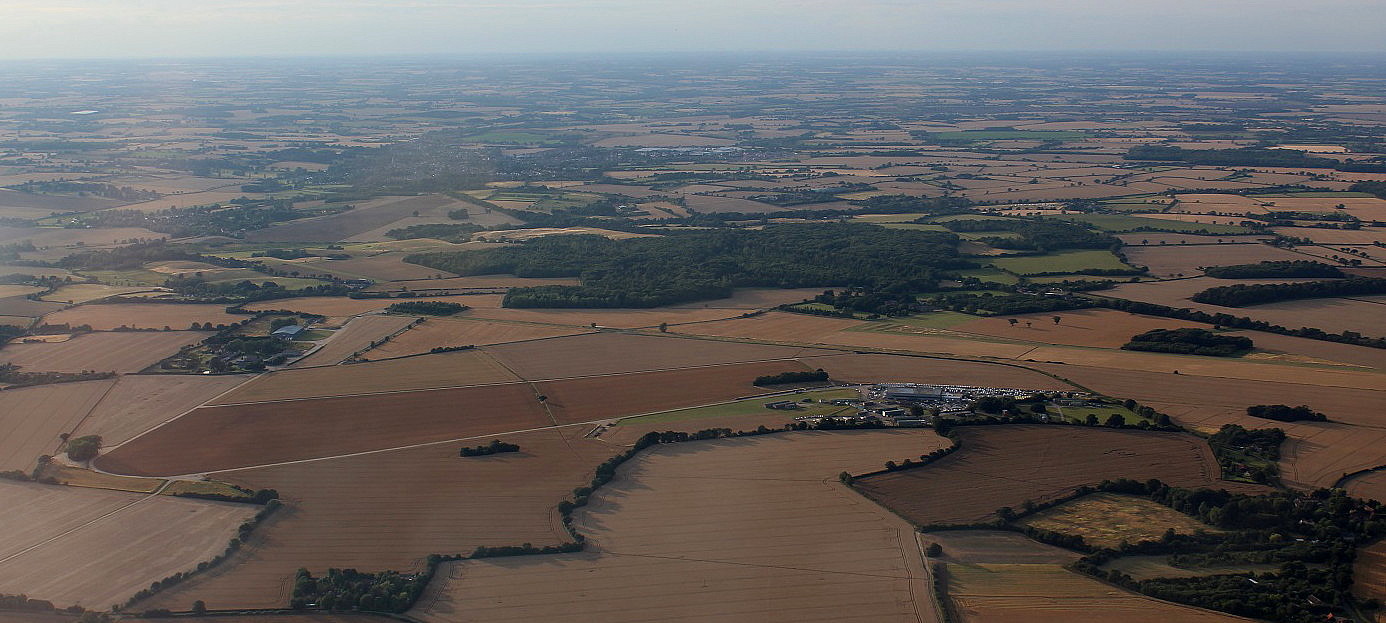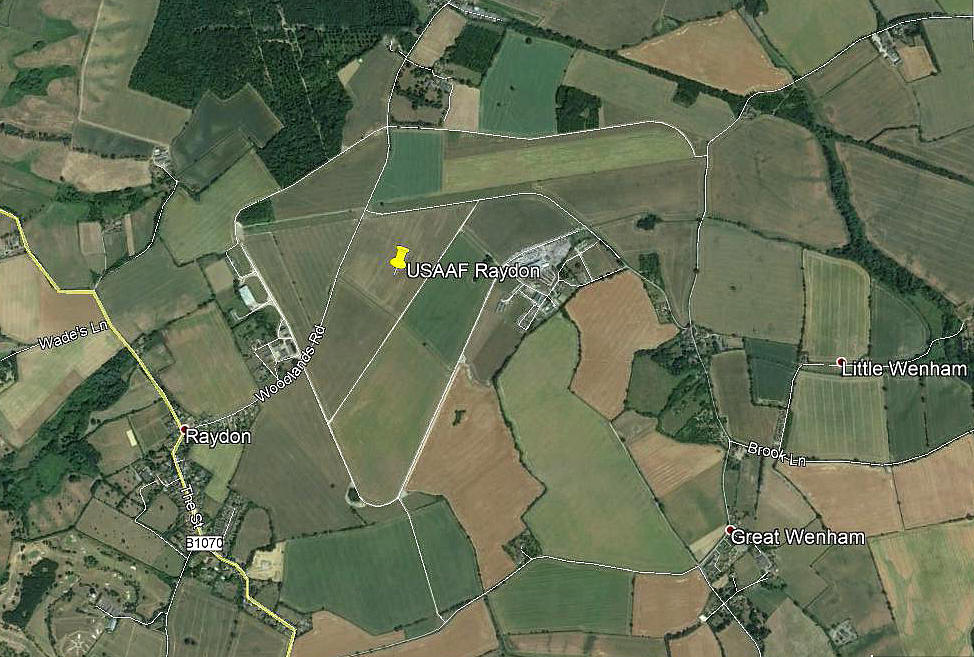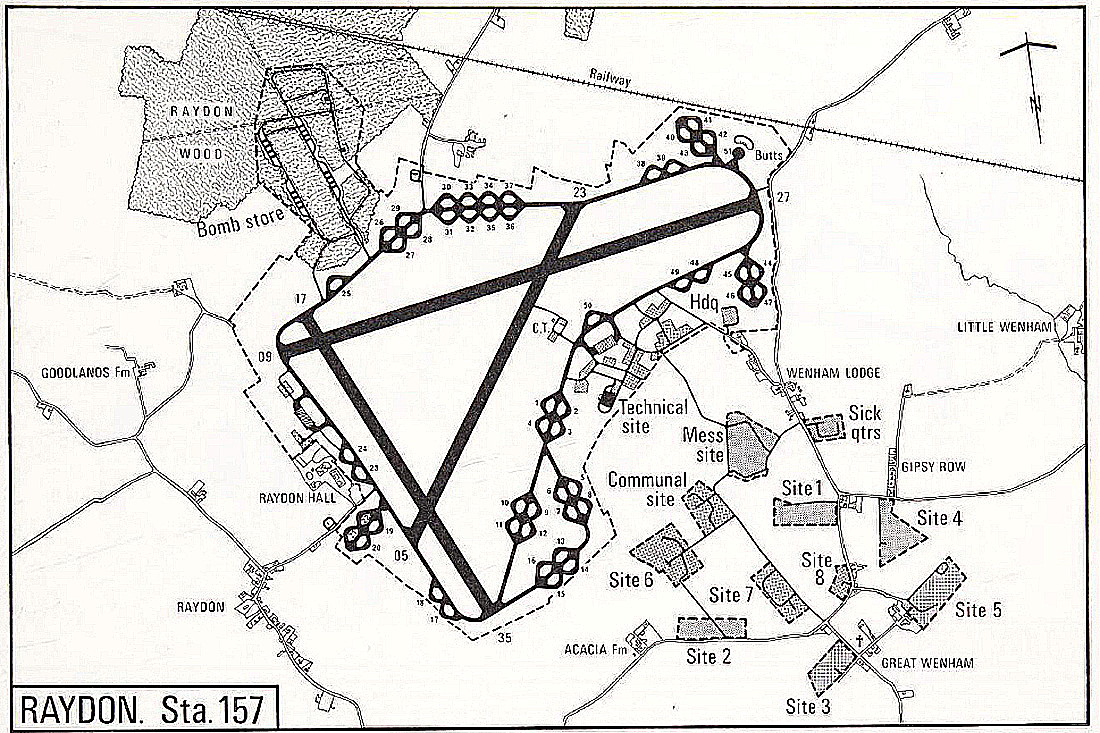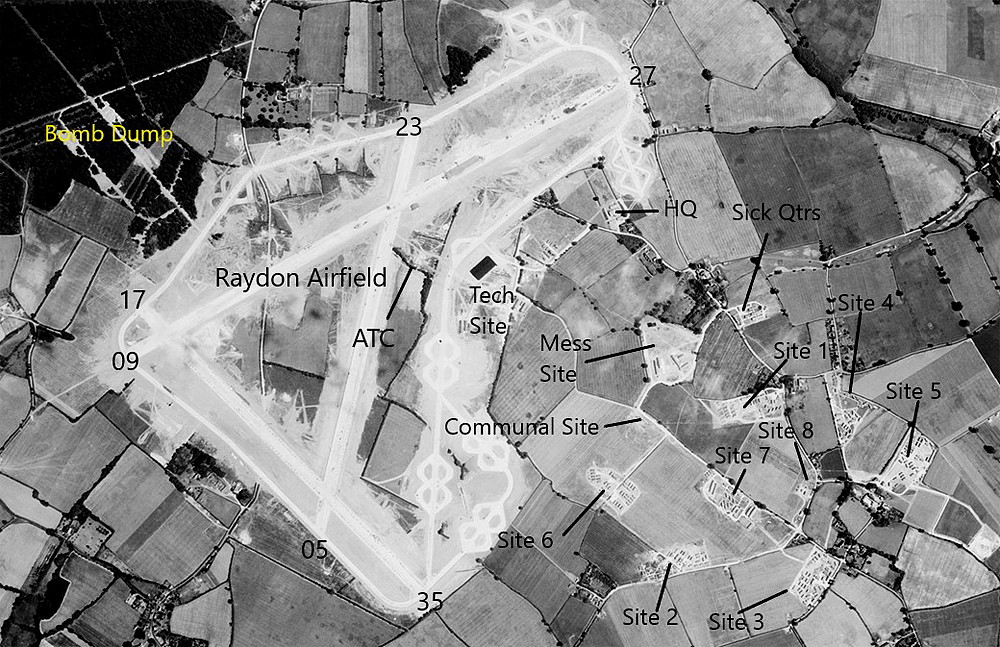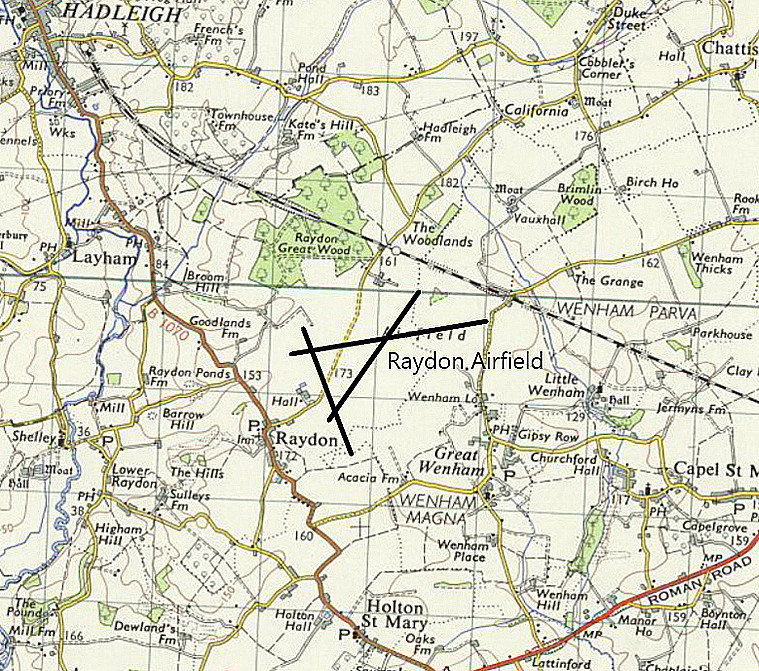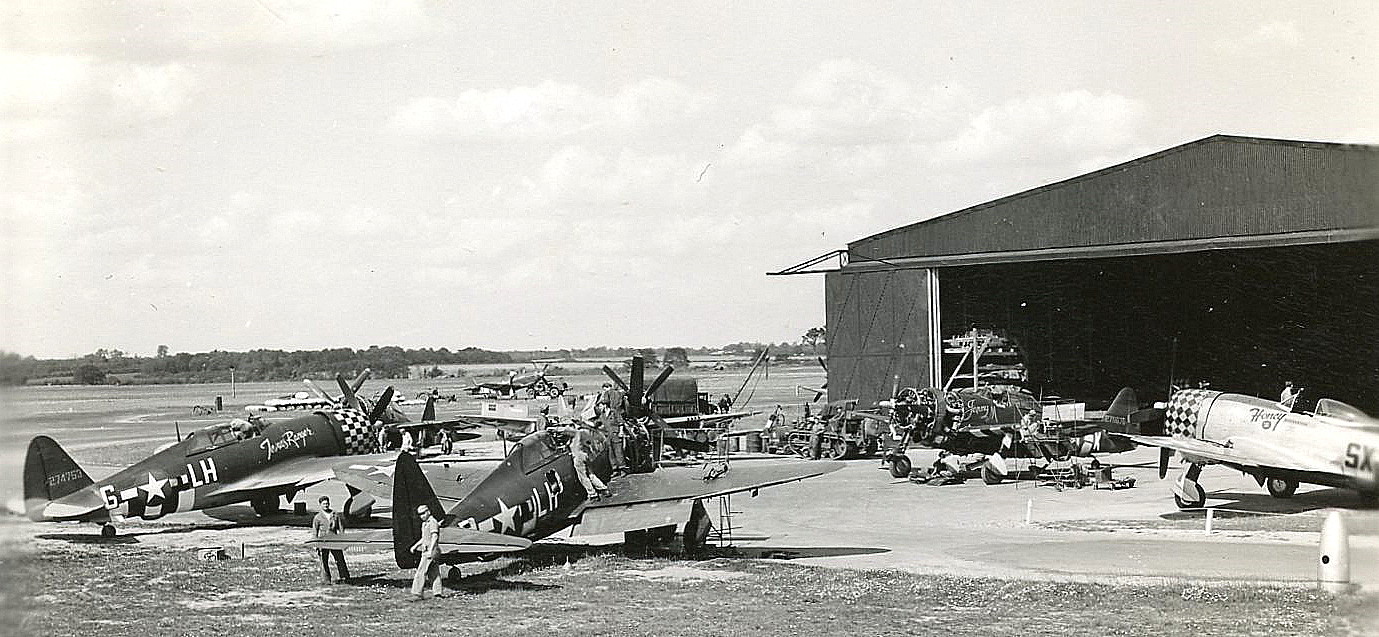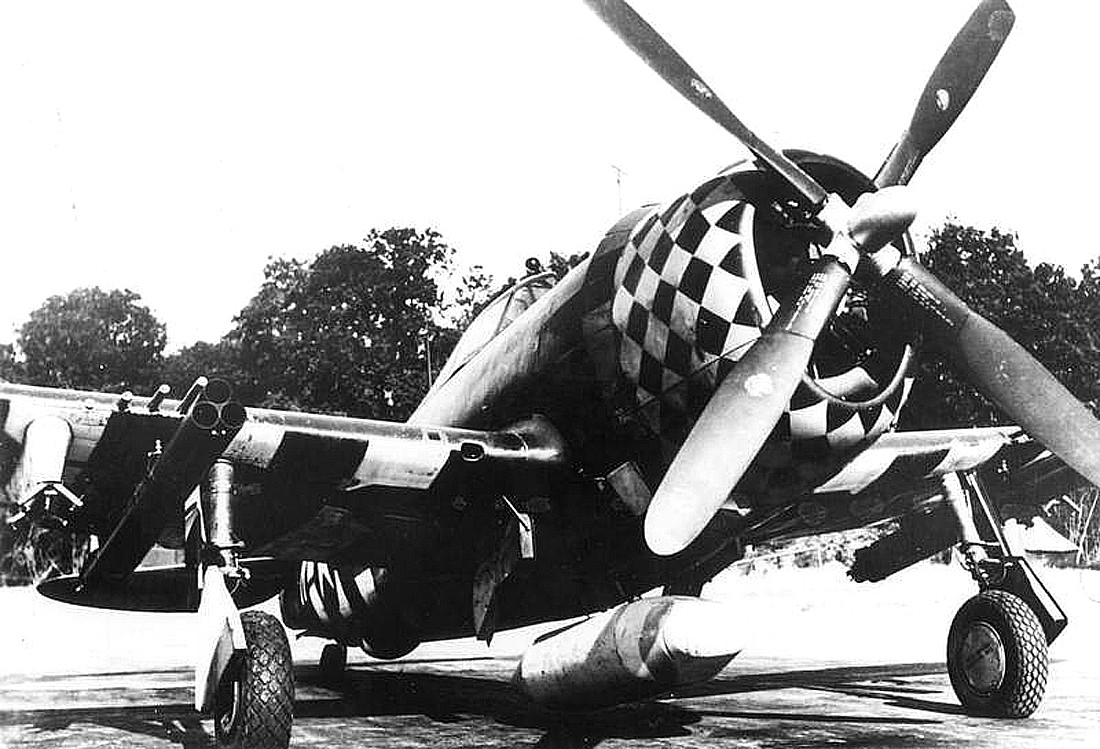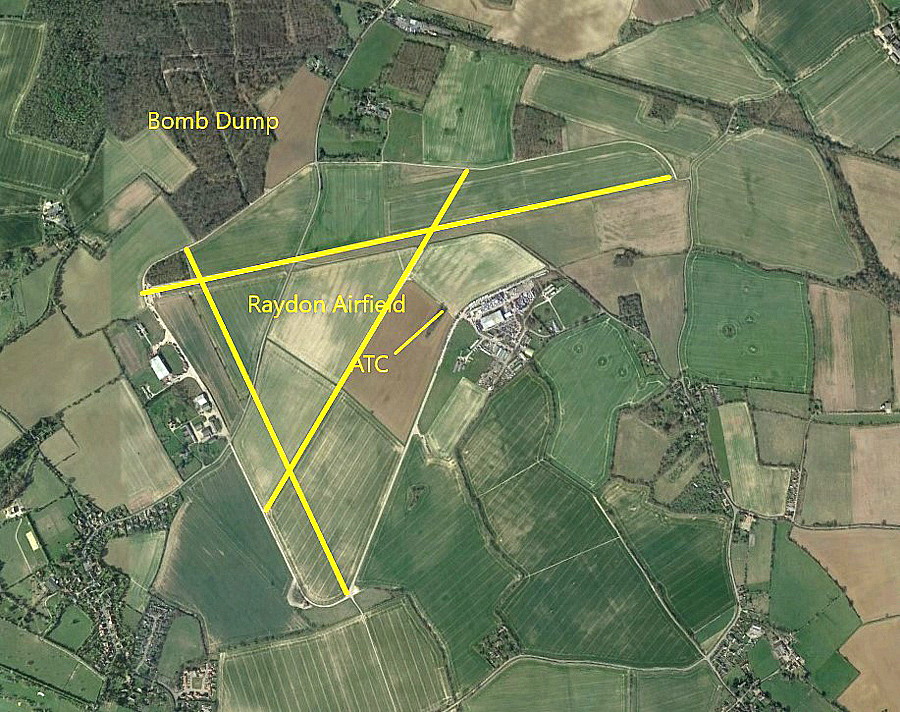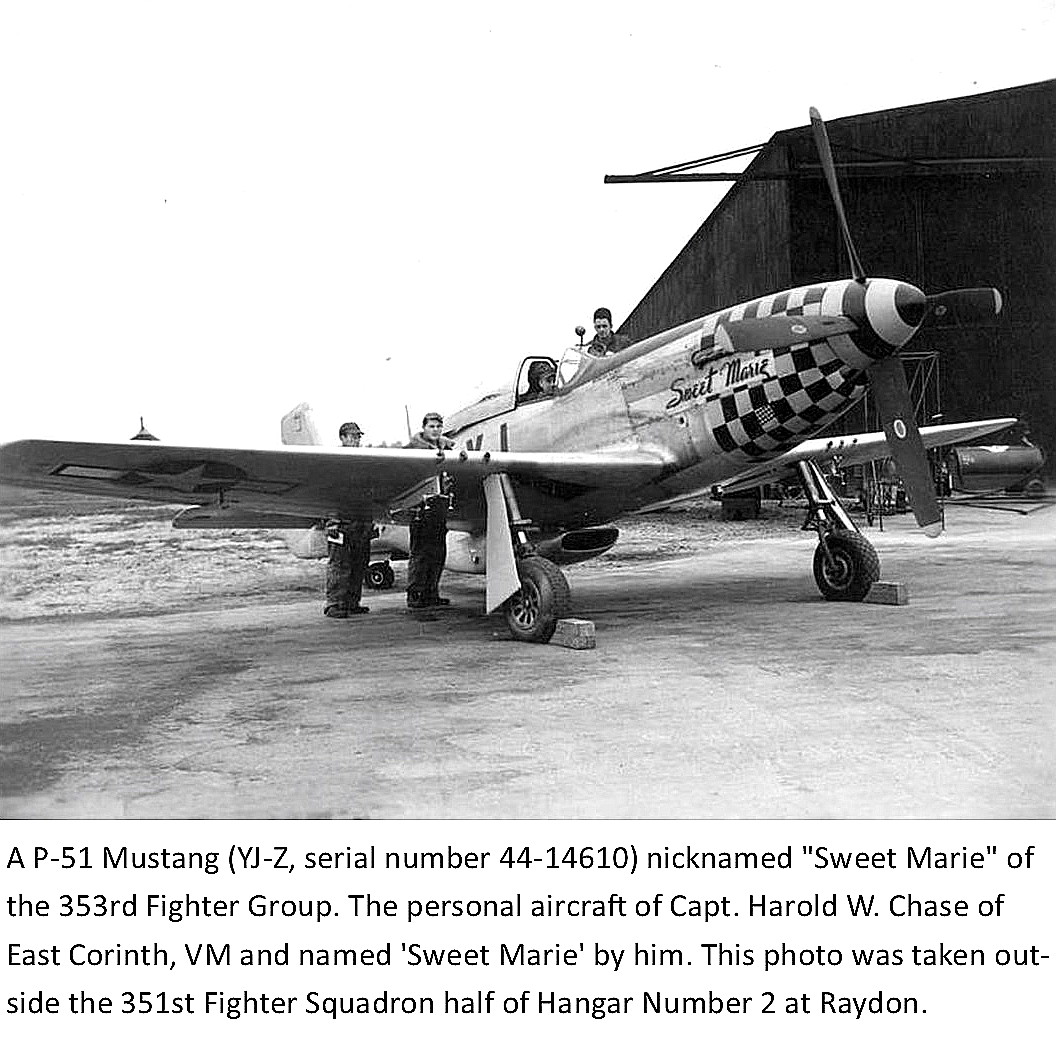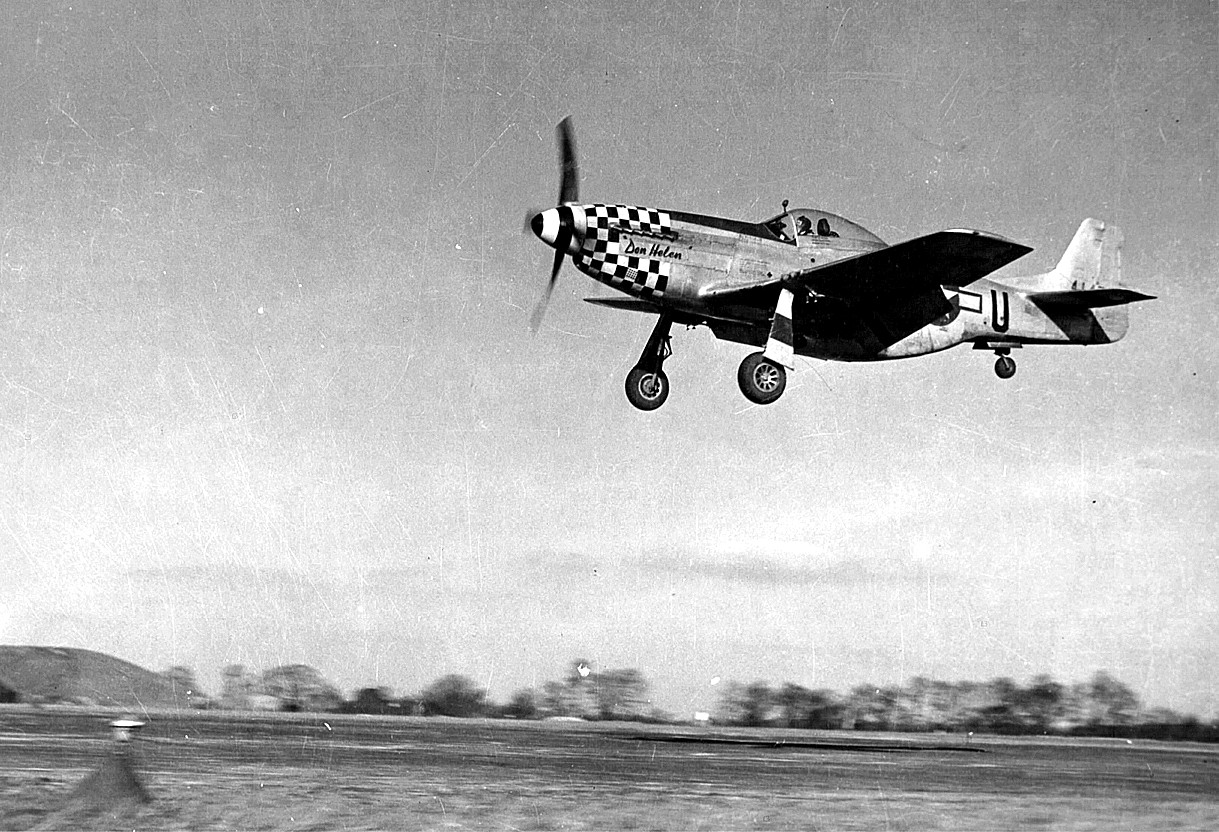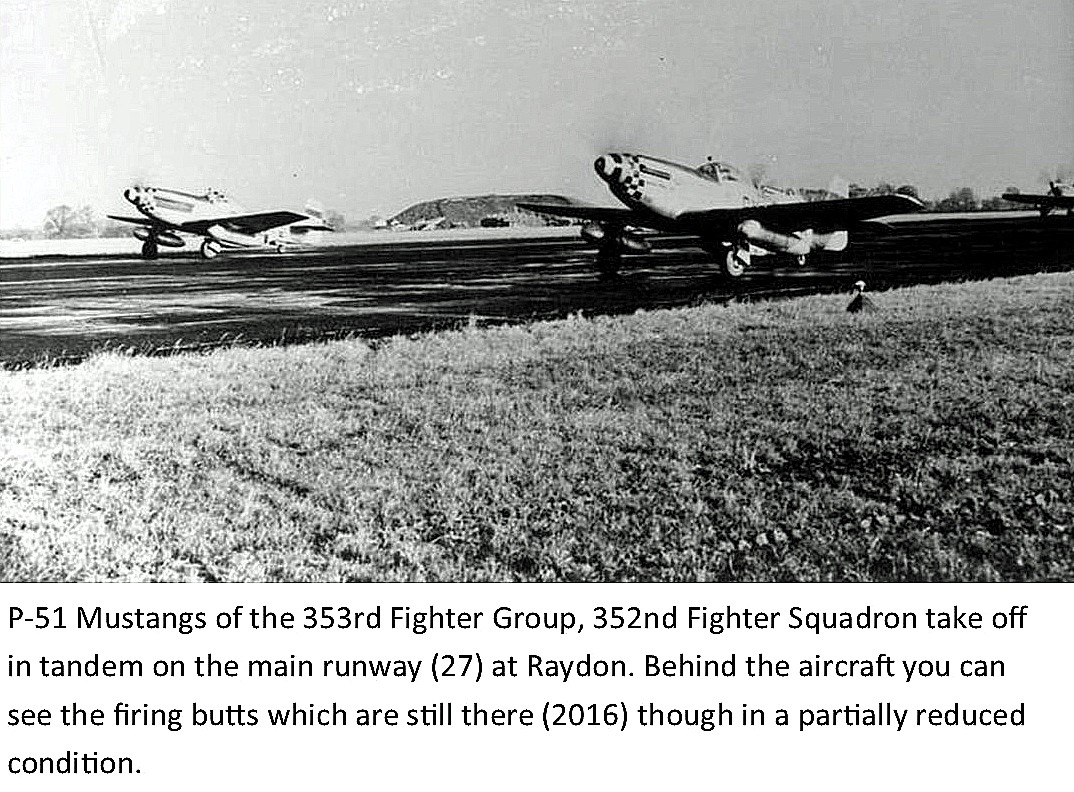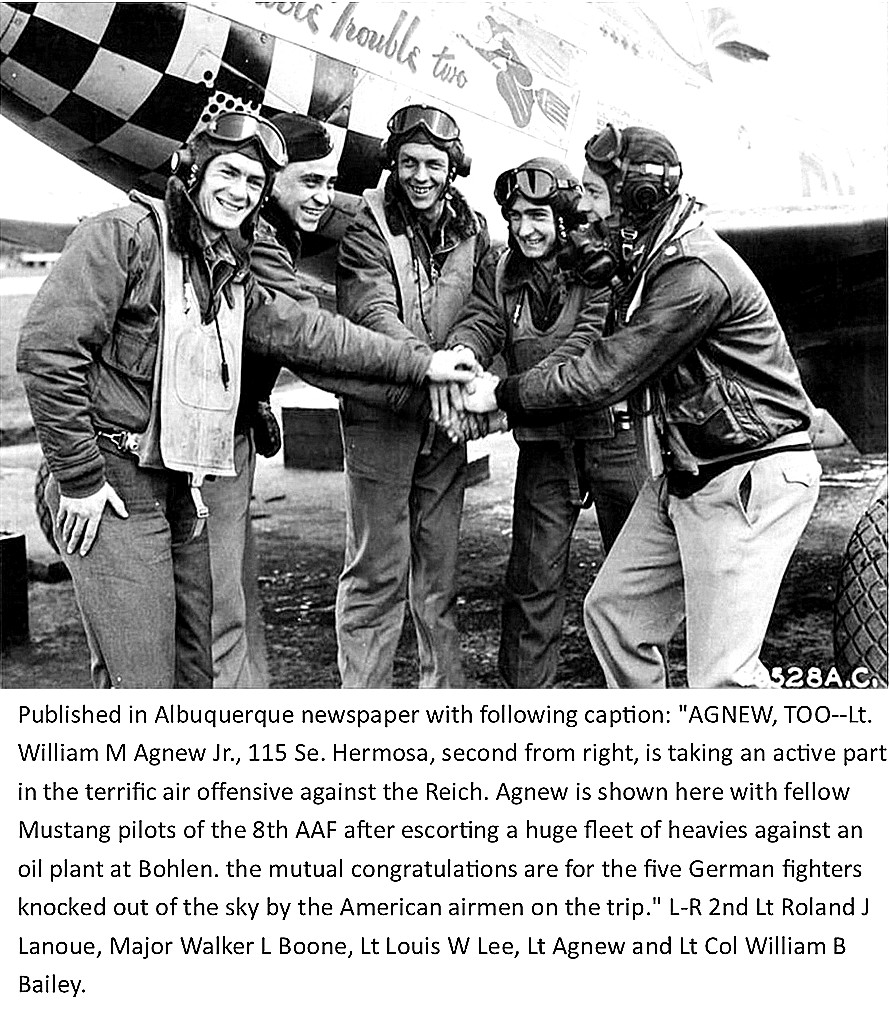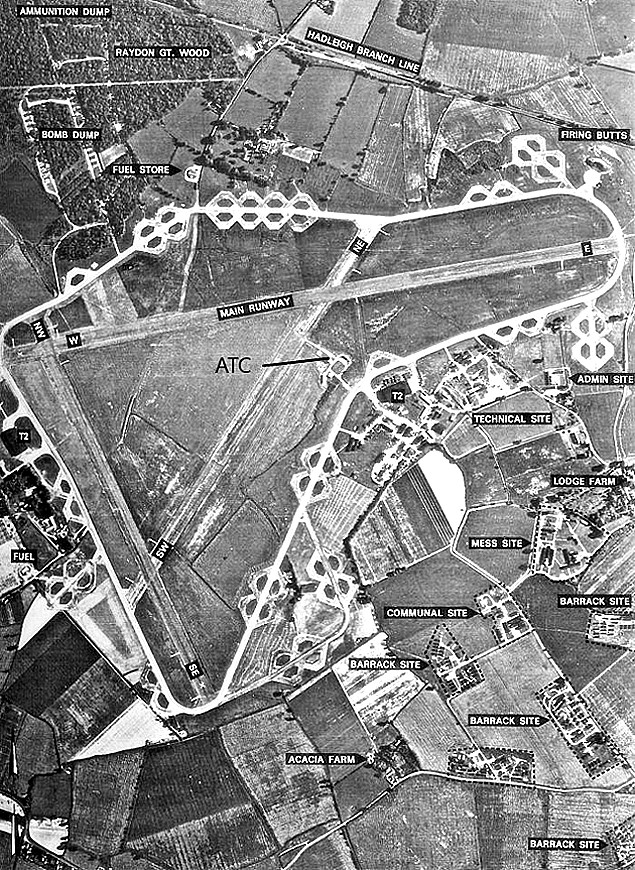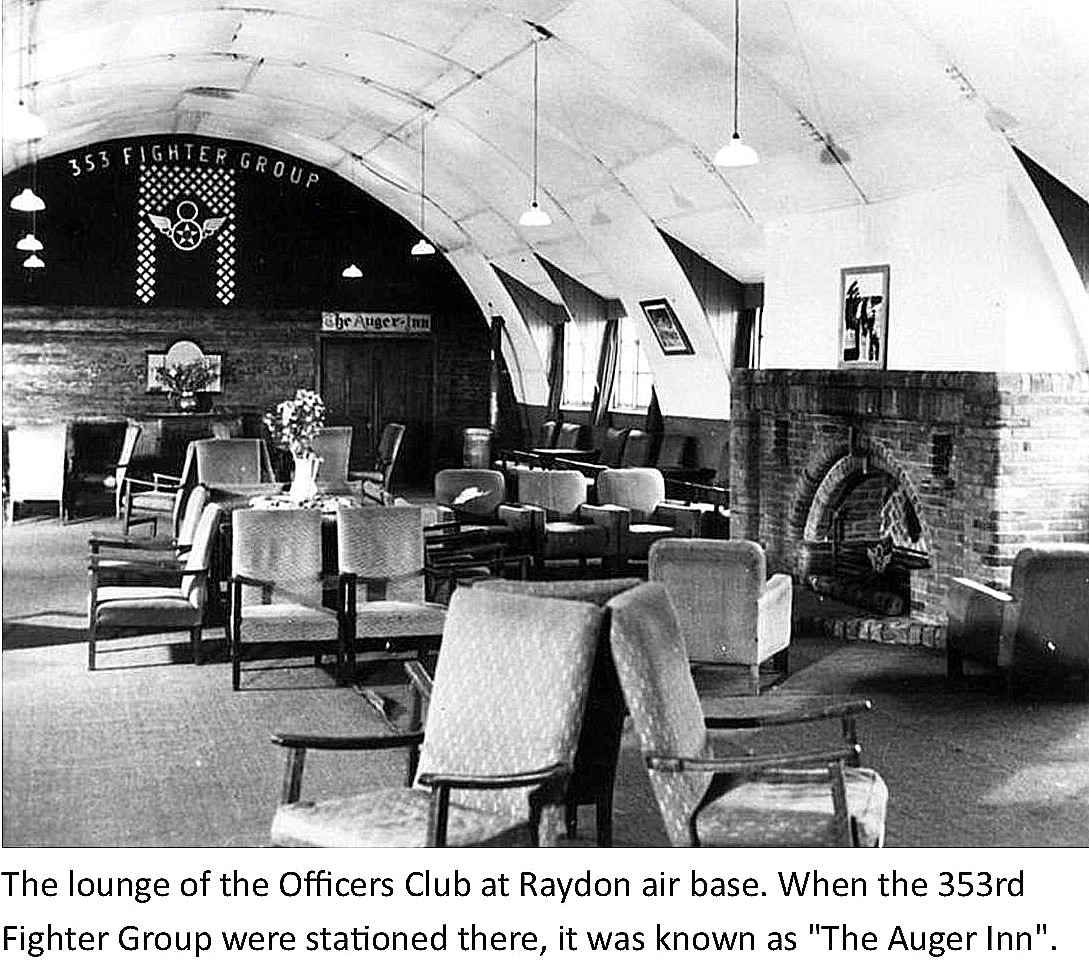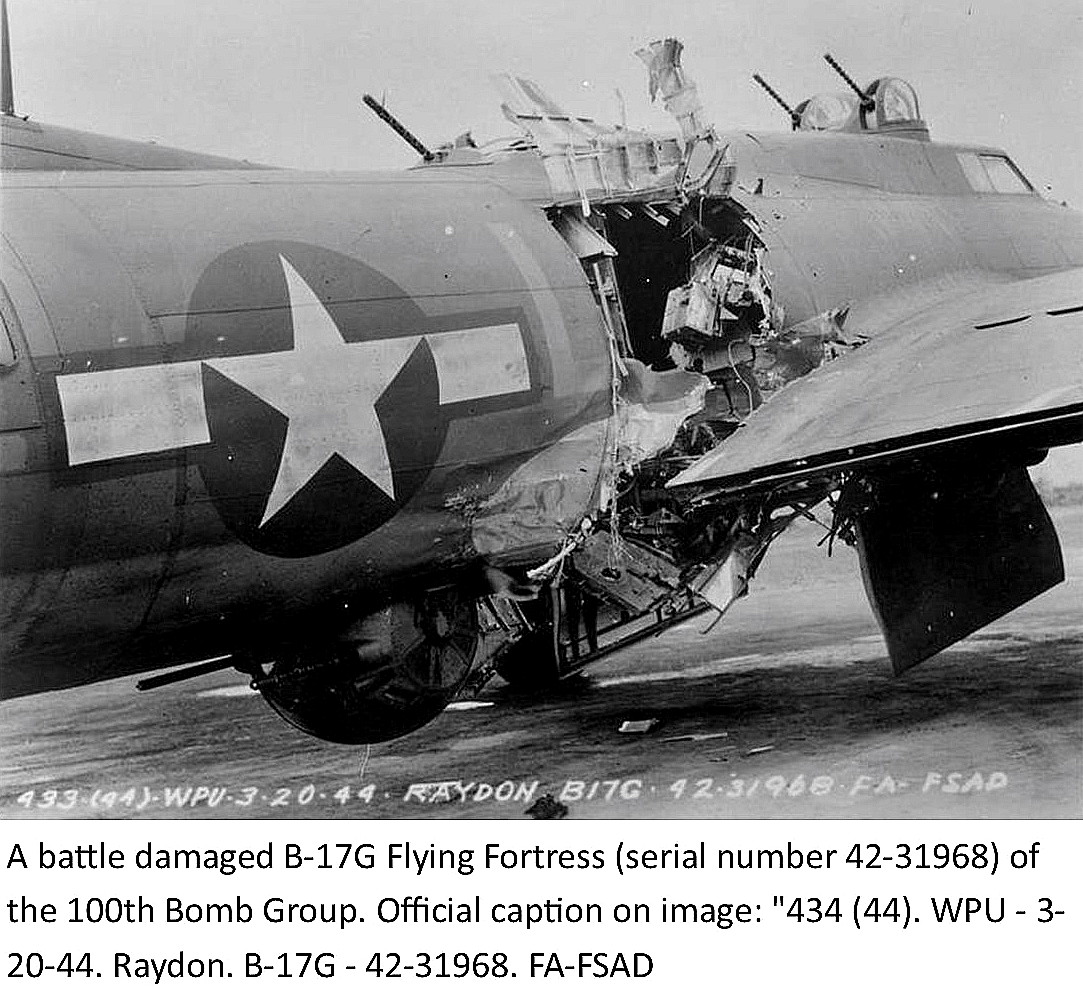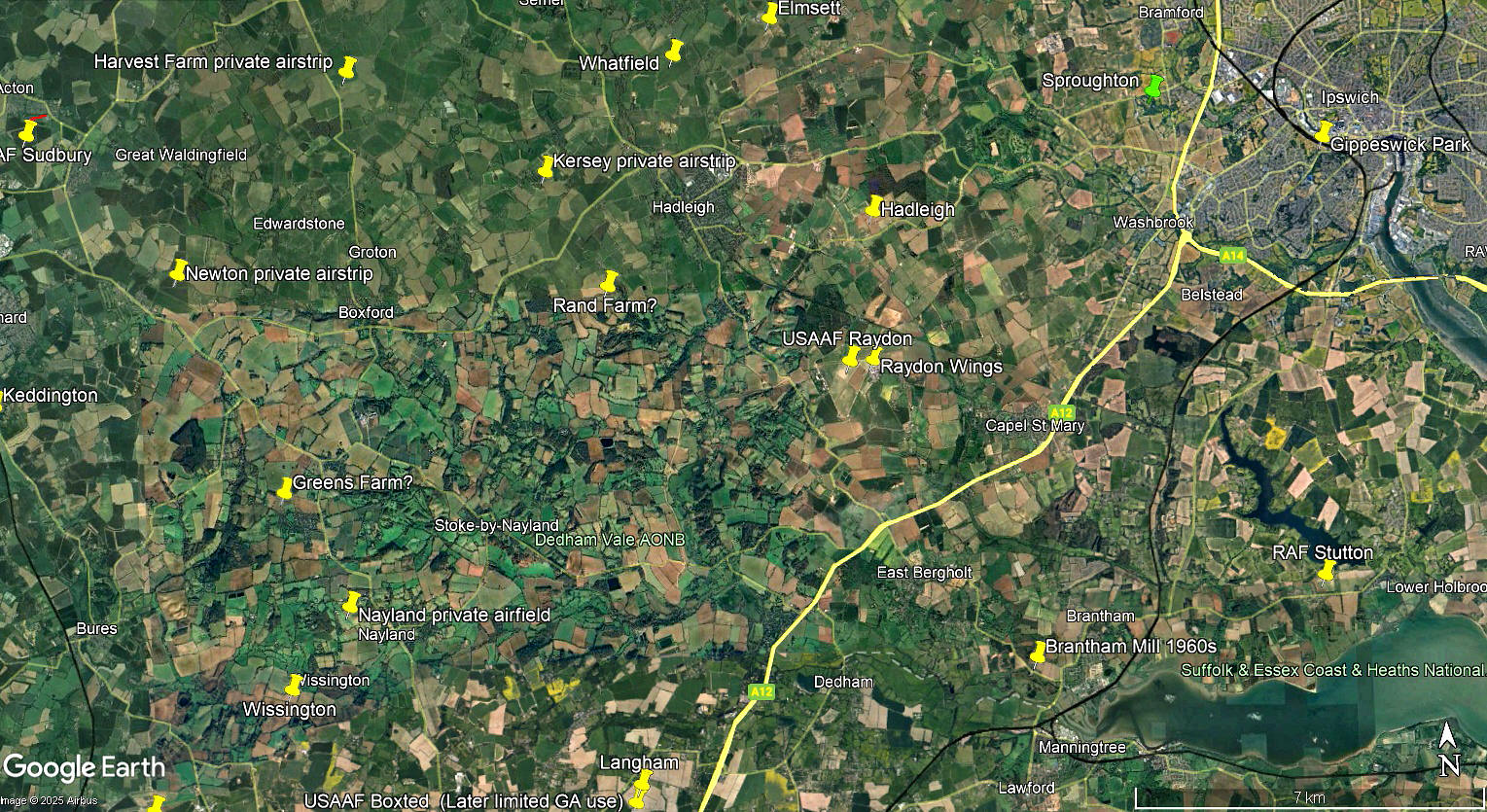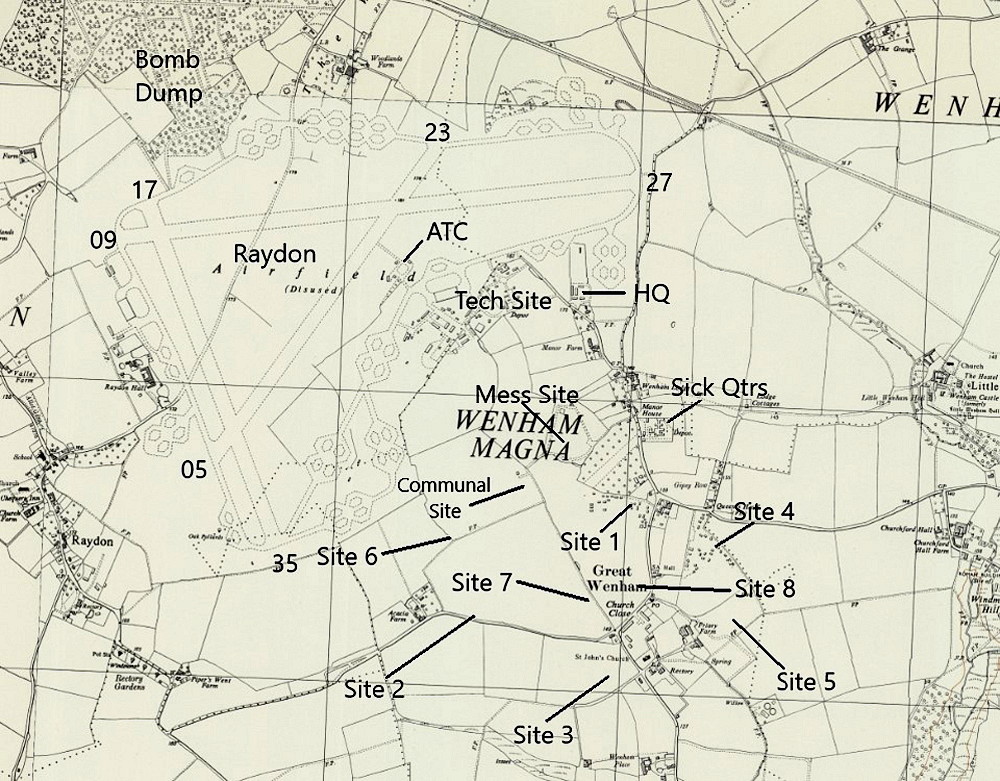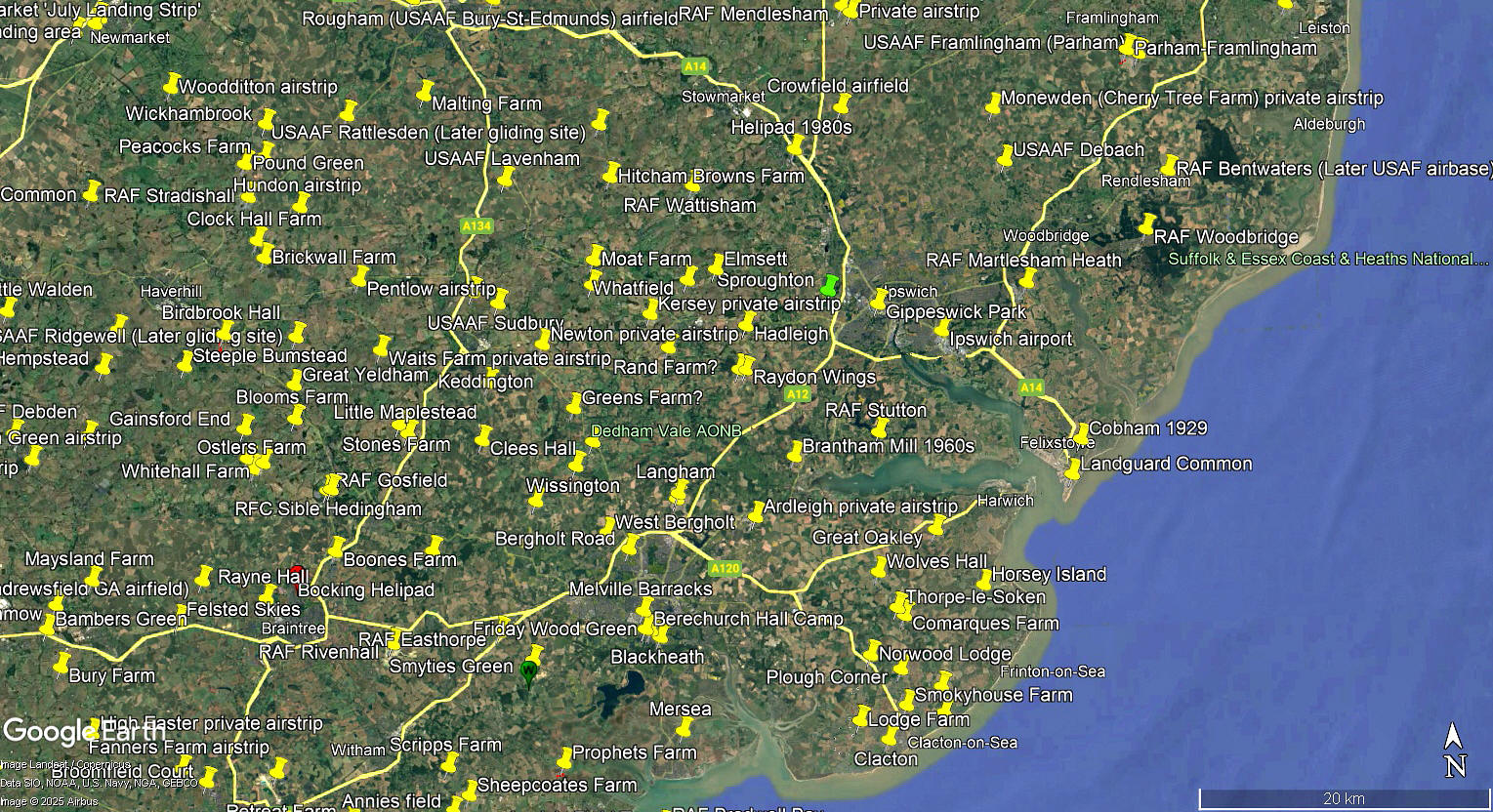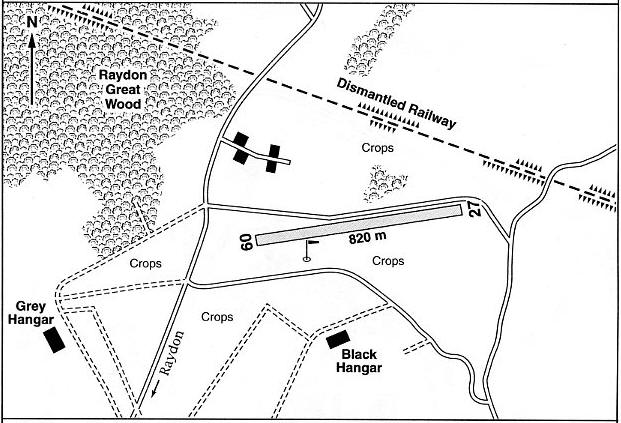Raydon
RAYDON: Military aerodrome
Note: The first picture, taken by the author (through perspex) in July 2015, clearly shows the WW2 site, and, on the north side of the airfield - the RAYDON WINGS site (see below) can also be clearly seen.
The second picture (2018) was obtained from Google Earth ©
Military user: WW2: 8th & 9th USAAF (Fighter air base)
357th Fighter Group (Moving in on the 30th November 1943)
362nd, 363rd & 364th Sqdns (Republic P-47D Thunderbolts)
358th Fighter Group (Moving in on the 31st January 1944)
365th, 366th & 367th Sqdns (North American P.51D Mustangs)
66th Fighter Wing
353rd Fighter Group (Moving in during April 1944)
350th, 351st & 352nd Sqdns (North American P-51D Mustangs)
Location: E of B1070, NE of Raydon, NW of Great Wenham, 3nm SE of Hadleigh
Period of operation: 1943 to 1958
Runways: WW2: 09/27 1829x46 hard 17/35 1280x46 hard
05/23 1280x46 hard
A MICHAEL T HOLDER GALLERY
We have Mike Holder, a great friend of this 'Guide', to thank for researching what is freely available to illustrate this location.
The 1943 aerial vertical photo is from the American Air Museum, (AAM).
Photo One shows P-47D Thunderbolts being maintained by the 378th Air Service Squadron. (AAM). Photo Two, also from the AAM, shows a Thunderbolt fitted with rocket launchers.
These being very effective at attacking small ground targets, such as trains, small ships, airfield hangars, etc.
THE MUSTANG ERA
All three of these pictures are from the American Air Museum.
Photos Six and Seven are also from the American Air Museum, the aerial vertical is from Wikipedia.
YES INDEED, IT KEPT FLYING
Clearly and sensibly, the pilots of this B-17 Flying Fortress decided to get it back on the ground, in England, ASAP! RAYDON being fairly close to the coast being, with the main (09/27) runway quite long enough, a good choice. The Boeing B-17 Flying Fortress soon earned a reputation for being able to absorb considerable damage to its airframe, and still keep flying. Many photos exist depicting just how much battle damage it could withstand.
The local area and area views are from my Google Earth © derived database.
NOTES: In late WW2 the 8th USAAF typically posted about 2900 personnal at their bomber bases, but in this case even though it was a fighter base, 2842 personnel were based here in late 1944. I suppose this makes sense to somebody but I would expect many more people were needed to look after bombers. Is the answer obvious in that the USAAF fielded many more fighters at each fighter base than bombers at bomber bases? There is another interesting aspect apparently contained in some notes of the period. These state the main runway could be widened to 400 yards, (366 metres), and the others to 250 yards, (229 metres). But why I would ask - were runways of such huge widths even considered at that time? It seems the likely answer is that it was considered to be used, (possibly?), by the largest USAF bombers during the build-up to the "Cold War".
This said, I have noted that the USAF Bomber Command soon had other ideas. Thinking, lets put the Brits on the front line, while we shall retreat much further inland. (BRIZE NORTON, UPPER HEYFORD for example). Doubt they'll object or even notice?
RAYDON WINGS: Private airfield
Operated by: Raydon Wings Ltd
Location: 2.5nm SE of Hadleigh, 4nm SW of Ipswich
Note: This map is reproduced with the kind permission of Pooleys Flight Equipment Ltd. Copyright Robert Pooley 2014.
Runway: 09/27 820x27 grass
NOTE: Several years ago I made this note: "I’d place a pretty hefty bet, (up to £1 in fact), that this grass strip is situated on the WW2 RAYDON military aerodrome." In 2015 I could confirm this.
It appears that the Vans RV-4, G-MAXV, was based here from May 2021 until May 2023. I wouldn't normally mention such a short stay, but, according to the register, the ownership status was given as chartered. From memory, (which is far from perfect), I cannot recall any other home-built aircraft being available for charter.
Valerie Stabenow
This comment was written on: 2019-06-13 05:45:39My dad was Senior Flight Control Officer at Raydon for the duration of the war. Thank you for posting this!
We'd love to hear from you, so please scroll down to leave a comment!
Leave a comment ...
Copyright (c) UK Airfield Guide















